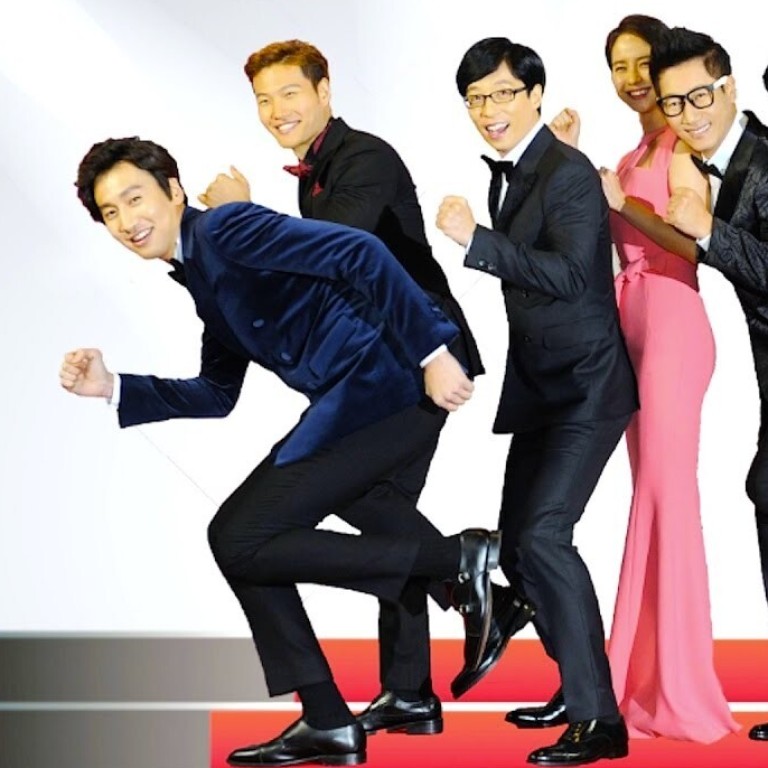
Chinese netizens boycott South Korean television show Running Man for ‘insulting China’
- During an episode of the popular variety show, Taiwan was depicted as a country in its own right, a move that enraged many Chinese viewers
- It’s the latest in a string of incidents where a South Korean show or celebrity has created uproar in China
Chinese internet users are calling for a boycott of the South Korean show Running Man for “insulting” their country.
The controversy, which is being played out between the two countries on social media, was sparked on Sunday during an episode of the popular variety show.
Members of the show were playing Blue Marble, a board game that allows players to invest in real estate all over the world. Netizens spotted that China and Taiwan were placed side by side on the board, together with their flags.
Many Chinese viewers saw this as support for Taiwan’s independence and criticised the South Korean production company Urban Works Media and distributor network SBS for “insulting China”.
“I feel speechless, I will no longer watch the show,” one comment said on Weibo, China’s Twitter-like social media service. “You have touched a bottom line that we cannot back down [from]. I am Chinese first, before being a fan of the show.”
“Even though my happy Mondays are gone, I will not compromise in the face of major issues. Goodbye Running Man,” another said.
The episode was later removed from the Chinese streaming platform Bilibili, although an abridged version can still be viewed without the controversial segment.
When China’s obsession with Korean reality TV took a deadly turn
China regards Taiwan as a breakaway province that must be returned to the mainland, by force if necessary, while Taiwan president Tsai Ing-wen said Beijing needed to face the reality that the island was “an independent country already and we call ourselves the Republic of China”.
Since first airing in 2019, Running Man has had a large fan base in China and enjoyed immense popularity. On a popular forum sponsored by search engine Baidu.com, the show has close to 1.4 million fans and there are more than 13 million posts. In 2014, China’s Zhejiang TV also made a Chinese version with the help from SBS’ production team, which also became one of the top-ranking reality shows of all time in the country.
This isn’t the first time recently a South Korean show or celebrity has created uproar in China.

In the past, the Chinese government has imposed restrictions on the entertainment industry in response to political tension.
Four years ago, Beijing unofficially imposed a K-pop ban after Seoul allowed the deployment of the Terminal High Altitude Area Defence (THAAD) system, a US anti-missile shield, in the country. South Korean stars were not invited to appear on Chinese television shows and cooperation on joint projects generally stopped. In addition, some Chinese consumers called for a boycott of South Korean goods.
Sometimes, it’s South Korean internet users who are the ones getting angry at China.
In November, Chinese comic book artist Old Xian came under fire after he posted a drawing on Weibo of four characters in traditional clothing, known as hanfu. South Korean netizens said the clothing was clearly Korean-style and accused the artist of stealing Korean culture. China responded by saying Korean clothing and culture evolved from Chinese culture in the first place, and the hats used in Korea had appeared during China’s Ming dynasty.
Also in November, Chinese and South Korean netizens clashed after Beijing won a certification from the International Organisation for Standardisation (ISO) for pao cai, Chinese pickled vegetables. South Koreans claimed it was misleading because pao cai also refers to kimchi, the well-known fermented cabbage dish used in Korean cuisine. The South Korean media accused China of stealing their food culture by trying to declare kimchi a Chinese-made food.
For more great stories on Korean entertainment, artist profiles and the latest news, visit K-post, SCMP's K-pop hub.

.jpg?itok=H5_PTCSf&v=1700020945)